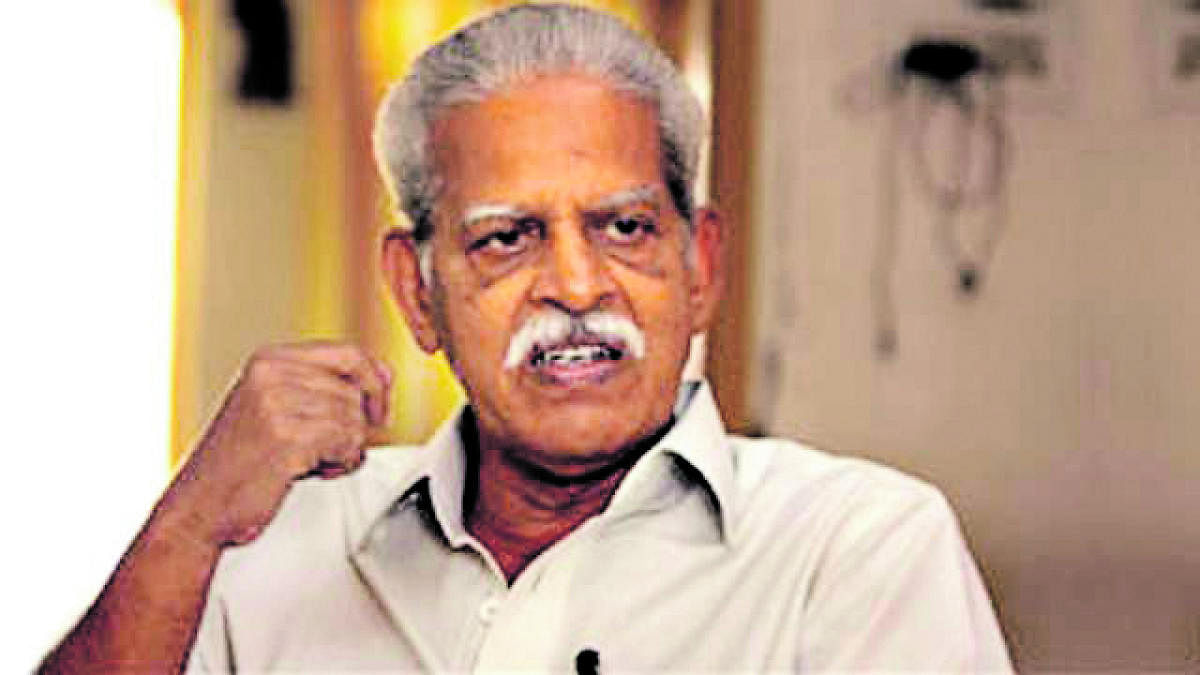
The grant of permanent bail to 82-year-old poet and activist Varavara Rao by the Supreme Court in the Bhima-Koregaon case came after a long and difficult legal struggle. He was arrested under the draconian Unlawful Activities (Prevention) Act (UAPA) in 2018 and was granted medical bail in 2021. It had been extended from time to time on medical grounds. Now, the SC has granted him regular bail with conditions. The NIA argued in court that age should not be a factor in granting bail and that Rao has no serious medical problem. The court rejected this argument. Another accused in the case, the octogenarian tribal rights activist Stan Swamy, died in jail in July last year, waiting for bail on health grounds.
Bail is considered the normal right of an accused. But it is difficult to get bail even in ordinary cases for various reasons, despite the SC guideline that bail is the rule, jail the exception. In cases under the UAPA, it is almost impossible to get bail, as the experiences of Rao, Stan Swamy and others in this case, and of many accused in other cases, show. In granting bail to persons facing charges under draconian laws like the UAPA, the SC has taken into consideration factors like the age and health condition of the accused, the delay in the framing of charges, and the slow pace of trials. But it takes a long time, and many people are unable to wage a long legal struggle going up to the top court. The process thus becomes the punishment, and many like Stan Swamy do not survive it.
In a UAPA case, the accused have to prove their innocence, and judges are required to deny bail if they believe there is truth in the case, prima facie. Judges of the lower courts often do not question the police version before framing charges. Securing bail becomes more difficult after that. The SC ruling that any long delay in holding the trial could be a ground for granting bail might help in some cases. The Bhima-Koregaon case should cause special concern in this context. From the beginning, the case was not credible, and there have been reports that incriminating evidence was planted in the electronic devices of the accused to implicate them. Even four years after the accused were put in jail, charges have not been framed in all cases. The trials are not in sight. Such prolonged incarceration of people without relief is gross injustice and a violation of fundamental rights.